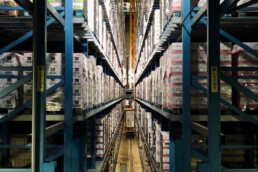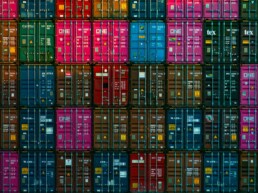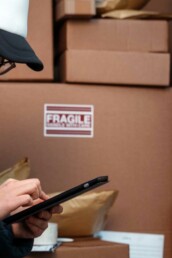How Tariffs Impact Ecommerce Profits and Why 3PLs Are the Solution
In 2025, ecommerce businesses face a daunting challenge: new tariffs are squeezing profit margins tighter than ever. Whether you’re importing goods from overseas or navigating rising shipping costs, tariffs impact ecommerce in ways that demand smarter strategies. Fortunately, Third-Party Logistics (3PL) providers offer a lifeline. By leveraging their expertise in fulfillment services and supply chain management, businesses can stay competitive. Let’s explore how tariffs impact ecommerce, why margins are at risk, and how outsourcing to a 3PL can help you thrive.
The Tariff Threat to Ecommerce

Tariffs, essentially taxes on imported goods, have been a hot topic since the U.S.-China trade war began adding billions in costs—$80 billion since 2018, according to the USTR. In 2025, with potential tariff hikes looming (think 10-20% on Chinese goods), ecommerce companies feel the pinch. For instance, higher costs for inventory mean slimmer profits unless prices rise—which risks losing price-sensitive customers. Meanwhile, shipping and delivery expenses climb as fuel surcharges and carrier fees reflect tariff-driven inflation. Tariffs impact ecommerce not just at the product level but across the entire supply chain.
However, the story doesn’t end there. Businesses relying on international shipping and import/export face delays at customs, while last-mile delivery costs soar—often accounting for over 50% of total delivery expenses, per 2024 Pitney Bowes data. Without a plan, these pressures erode profitability fast. So, what’s the solution?
How 3PLs Counter Tariff Challenges
This is where Third-Party Logistics (3PL) steps in. By outsourcing to a 3PL, ecommerce businesses tap into scalable fulfillment solutions that offset tariff costs. For example, 3PLs excel at supply chain optimization, using tools like warehouse automation and cloud-based Warehouse Management Systems (WMS) to streamline operations. Instead of absorbing higher freight costs, a 3PL’s freight rate negotiation and carrier selection and management can secure better deals. Consequently, you save money without compromising on-time delivery.
Moreover, 3PLs offer warehousing and distribution closer to your customers. Imagine storing inventory in a U.S.-based fulfillment center rather than relying solely on overseas bulk shipping. This reduces international shipping fees and customs brokerage headaches, directly countering how tariffs impact ecommerce. At Falcon Fulfillment, for instance, our Salt Lake City and Louisville hubs enable 2-day ground shipping to most of the U.S.—a cost-effective edge in a tariff-heavy world.

Practical Cost-Saving Strategies with 3PLs
Beyond location, 3PLs bring value-added services (VAS) like kitting and assembly or packaging optimization. These boost order value and cut waste, helping you maintain margins without raising prices. Additionally, inventory management becomes a breeze with 3PL technology solutions—think inventory tracking software and order fulfillment metrics and reporting. By forecasting demand and using inventory cycle counts, you avoid overstocking costly tariffed goods.
For multi-channel fulfillment, 3PLs integrate seamlessly with platforms like Shopify, ensuring order accuracy and quality control across sales channels. Meanwhile, services like reverse logistics and Return Merchandise Authorization (RMA) processing keep returns efficient, preserving customer trust. In short, a 3PL turns tariff challenges into opportunities by optimizing every step from order fulfillment solutions to transportation management systems (TMS).
Why Outsourcing Makes Sense Now

Although managing fulfillment in-house might feel like control, tariffs expose its limits. Rising costs for freight forwarding, outbound and inbound logistics, and even same-day and next-day delivery strain small teams. On the other hand, a 3PL’s expertise in ecommerce fulfillment and freight consolidation spreads those costs across their network, delivering savings you can’t replicate alone. Plus, with 3PLs handling order tracking and management, you focus on growth—not logistics.
Consider this: as tariffs impact ecommerce, profit margins shrink unless you adapt. A 3PL partnership might just be the edge you need to keep prices competitive and customers happy. It’s not about handing over control; it’s about leveraging pros who’ve mastered fulfillment cost analysis and supply chain management. At Falcon, we’ve seen clients cut shipping costs by 15% through strategic warehousing—proof that outsourcing works.
Beginner’s Guide to Third-Party Logistics (3PL)
The world of e-commerce is always changing, therefore understanding the roll of Third-Party Logistics is integral to keeping up. In light of this our beginner’s guide to third-party logistics (3PL) will delve into the essential aspects, offering insights into fulfillment services, warehousing, and much more.
Read More…
Ultimately, tariffs are here to stay, reshaping how ecommerce operates. However, with the right partner, you can navigate this storm. A 3PL offers more than just order fulfillment solutions; it’s a strategic ally against rising costs.





